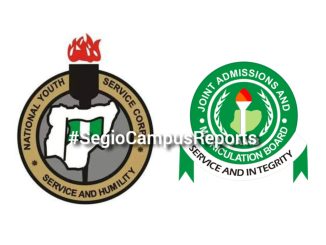
The Hidden Realities of Teaching Practice in Nigeria
For many Education students in Nigeria, whether in Colleges of Education undergoing the NCE programme or in universities pursuing a Bachelor’s degree in Education, Teaching Practice (T.P.) is one of the most anticipated aspects of their academic journey. But for those who have passed through it, both at the intermediate and final stages, the reality is often a mix of challenges, lessons, and moments of growth.
From the start, the process itself can be demanding. In some institutions, school authorities are directly responsible for posting students to designated schools. However, in other cases, students are left to search for placement schools by themselves, similar to the SIWES (Students’ Industrial Work Experience Scheme) process. This inconsistency in posting often determines whether students will have a smooth or stressful Teaching Practice experience.
Inside the schools, experiences vary. Some principals and head teachers, particularly in schools outside the official government-recognized list, exploit the vulnerability of students. They impose unnecessary rules, use the fear of supervisors to silence complaints, and sometimes make Teaching Practice more about endurance than learning. Worse still, there are teachers who completely abandon T.P. students, forgetting that they are only there to learn and not to take over their jobs. This leaves many students frustrated and unsupported.
Yet, there are also bright sides. Many teachers extend genuine support, mentoring students through lesson planning, guiding classroom management, and even shielding them when supervisors visit. These teachers embody the true spirit of education, proving that Teaching Practice can still be a transformative and memorable experience.
But beyond the choice of school, students must also remember that their conduct matters. Teaching Practice students are ambassadors of their institutions. They are expected to be of good behavior, showing punctuality, respect, discipline, and professionalism. A careless attitude can damage both personal reputation and the image of the institution they represent.
Indeed, the essence of Teaching Practice is to cultivate the true qualities of a good teacher:
- Patience – the ability to deal with learners at different levels of understanding.
- Empathy – showing care, compassion, and understanding for students’ challenges.
- Discipline – maintaining order and serving as a role model.
- Integrity – being honest, dependable, and trustworthy.
- Confidence – effectively delivering lessons and managing classrooms.
- Creativity – finding new ways to make learning engaging.
- Inspiration – motivating learners to achieve more than they thought possible.
The Role of Supervisors
Supervisors play one of the most important roles in the Teaching Practice process. However, some have unfortunately begun to see themselves as mini-gods rather than guardians. Threatening to fail students over mistakes that can be corrected not only discourages but also instills fear in young teachers. Instead of building confidence, such attitudes can push students away from the teaching profession entirely.
Supervisors must always remember: they were once students too, taught and guided by others before they became supervisors. The student-teachers under their watch are the work of their hands—what they train is what they will eventually produce. Tomorrow, they should be proud to point at these students as teachers shaped by their guidance.
More importantly, the student you bully today may one day stand in front of your child in a classroom. If you fail to build them with patience and professionalism, you risk creating a cycle where tomorrow’s teachers pass down the same frustrations.
Supervisors should therefore see themselves as mentors, guardians, and guides, not tyrants. Their role is not to destroy confidence but to nurture competence.
The Role of Stakeholders
To make Teaching Practice a truly rewarding process, the government, regulatory bodies, and school authorities all have important roles to play.
- The government should regulate the activities of Teaching Practice nationwide, ensuring uniform standards across institutions. There should be training sessions or orientation programmes for school teachers and administrators, to prepare them on how best to mentor and guide student-teachers placed under them.
- Principals and head teachers should provide adequate instructional materials to ensure student-teachers can carry out effective lessons, instead of leaving them stranded.
- Teachers in schools should see themselves as mentors, not taskmasters. They must remember that Teaching Practice students are still learning and deserve proper guidance, not abandonment.
- At the end of the exercise, schools should appreciate and acknowledge student-teachers for their contributions. A simple act of recognition can motivate them to value the teaching profession more deeply, return to assist even outside T.P., and ultimately uplift the image of teaching in Nigeria.
The Role of TRCN
The Teachers Registration Council of Nigeria (TRCN) also has a critical role to play. As the regulatory body for the teaching profession, TRCN should:
- Monitor and evaluate the quality of Teaching Practice nationwide.
- Work with institutions to design effective Teaching Practice frameworks.
- Ensure only qualified schools are used for placements.
- Introduce minimum mentorship standards for teachers handling T.P. students.
- Reinforce professionalism so that Teaching Practice is not treated as mere formality but as a cornerstone of teacher development.
At its core, Teaching Practice is more than a requirement for graduation. It is an opportunity to shape young lives, discover personal teaching strengths, and prepare for the realities of the classroom beyond school. With the right preparation, the right school choice, the right conduct, the right supervisors, and the right support from stakeholders, Teaching Practice can be one of the most rewarding stages in the journey of becoming a professional teacher in Nigeria.
Segio Campus Reports
Amplifying Campus Voices
Segio Campus Reports is the Official News and Information Division of Segio Online Services



Be the first to comment